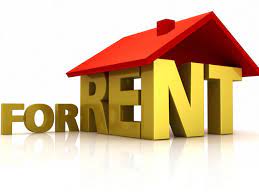Who is Responsible for Maintenance and Repairs?

Strong 8k brings an ultra-HD IPTV experience to your living room and your pocket.
Short term rentals in London have seen a significant boom over the last decade, offering travelers a more personal and flexible alternative to hotels. From sleek studios in Shoreditch to luxurious flats in Kensington, the appeal is undeniable. However, amidst the hustle and bustle of bookings, check-ins, and 5-star reviews, one essential question often lingers in the background: Who is responsible for maintenance and repairs?
Whether you're a property owner or a guest, understanding maintenance responsibilities is critical in ensuring a smooth, stress-free short-term rental experience.
The Basics: What Are Short Term Rentals?
Before diving into responsibilities, it’s important to define what we mean by short term rentals in London. These are typically properties rented out for a few days to a few weeks often listed on platforms like Airbnb, Booking.com, or VRBO. They cater to tourists, business travelers, or even locals looking for a temporary stay.
Unlike long-term leases, short-term rentals come with a unique set of expectations particularly around upkeep and maintenance.
Owner’s Responsibilities: The Foundation of Trust
In most cases, the property owner or host is primarily responsible for maintaining the rental property in good working condition. This includes both routine maintenance and unexpected repairs. Here's a breakdown:
1. Routine Maintenance
Routine maintenance involves proactive upkeep to prevent problems before they occur. For short term rentals in London, this can include:
Regular cleaning (often handled by hired professionals)
Ensuring appliances like kettles, ovens, and washers are working properly
Checking that plumbing, heating, and electrical systems are in good condition
Lawn care or outdoor maintenance, if applicable
Pest control measures
London’s competitive rental market demands high standards, and neglecting maintenance can quickly lead to negative reviews which damage a property’s reputation and booking rates.
2. Emergency Repairs
These are issues that arise unexpectedly and must be addressed immediately. Examples include:
Boiler breakdowns (a common issue in older London flats)
Leaking pipes
Faulty locks or broken doors
Electrical failures
In such cases, it is generally the host's legal and moral responsibility to resolve the issue promptly. Most short term rental platforms require hosts to ensure the property is safe and habitable at all times.
3. Compliance with Legal Standards
London has specific regulations for short term lets, including health and safety requirements. Property owners are responsible for:
Smoke and carbon monoxide detectors
Safe gas and electrical installations (often requiring certified checks)
Fire escape routes and information for guests
Failing to meet these standards can lead to fines or legal action, so staying compliant is non-negotiable.
Guest Responsibilities: Respect and Reporting
While owners carry the bulk of responsibility, guests also play a role in maintaining the rental property during their stay.
1. Reasonable Use
Guests are expected to treat the rental with the same care as they would their own home. That means:
Avoiding damage to furniture or fixtures
Using appliances correctly
Keeping the space reasonably tidy
Though normal wear and tear is expected, significant damage or neglect may result in fees or deductions from a security deposit.
2. Reporting Issues Promptly
If something breaks or malfunctions during a stay, it’s the guest’s responsibility to notify the host as soon as possible. Many issues — such as a dripping faucet or broken handle — can be addressed quickly if caught early. Failing to report them may lead to bigger (and more expensive) problems later.
Some hosts provide welcome guides with emergency contacts or instructions for reporting maintenance concerns. Guests should familiarize themselves with these resources.
Property Management Companies: A Helpful Middle Ground
Many owners of short term rentals in London choose to hire property management companies to oversee maintenance and repairs. These companies can provide:
24/7 guest support
On-call repair services
Scheduled maintenance checks
Cleaning and restocking between stays
This arrangement benefits both parties owners enjoy peace of mind, while guests receive a more professional experience. It also ensures that maintenance issues are handled promptly and professionally, reducing the risk of negative guest experiences.
Shared Buildings: Understanding Boundaries
Many short term rentals in London are located within apartment buildings or shared residential blocks. In such cases, building maintenance (e.g., exterior walls, common areas, elevators) is often the responsibility of the freeholder or building management company — not the individual property owner.
However, any interior issues within the specific flat remain the owner’s responsibility. This distinction is important for both owners and guests, as it may affect how quickly certain problems can be resolved.
What About Insurance?
Another critical layer of protection comes in the form of insurance. Property owners are strongly advised to take out specific short-term rental insurance that covers:
Accidental damage caused by guests
Public liability in case a guest is injured on the property
Emergency repairs
Loss of income due to property damage
Some platforms, like Airbnb, offer basic coverage through host protection programs, but these are often limited. Dedicated insurance ensures that maintenance and repair costs don’t derail an owner’s income.
Red Flags and How to Avoid Them
For guests booking short term rentals in London, it's wise to read property descriptions carefully and check reviews. Red flags may include:
Repeated complaints about broken amenities
Dirty or unmaintained interiors
Hosts who are slow to respond to issues
Choosing properties with professional management or “Superhost” status can help ensure a smoother experience.
For owners, routine inspections and proactive maintenance are key. Consider keeping a checklist of items to review between guest stays and invest in quality fixtures to reduce the frequency of repairs.
Conclusion: Communication Is Key
In the end, clear communication between host and guest is essential. While property owners bear the primary responsibility for maintenance and repairs, guests also have a role to play in keeping the property in good condition.
Short term rentals in London offer exciting opportunities — both for tourists seeking a local experience and for homeowners tapping into a lucrative market. But the key to success lies in proper upkeep. By understanding and fulfilling their respective responsibilities, hosts and guests alike can enjoy a hassle-free and enjoyable stay.
Whether you're listing a Victorian flat in Notting Hill or staying in a Canary Wharf high-rise, one truth remains: a well-maintained property leads to better experiences, better reviews, and better returns.
Note: IndiBlogHub features both user-submitted and editorial content. We do not verify third-party contributions. Read our Disclaimer and Privacy Policyfor details.







